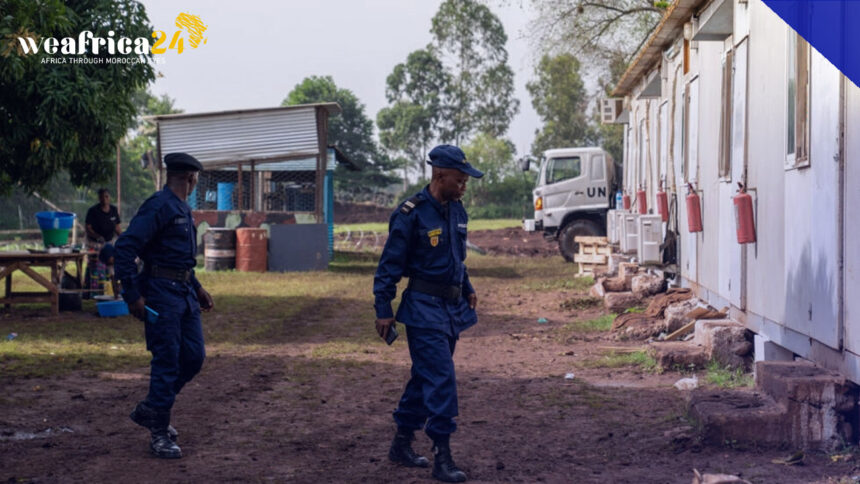The Congolese government and the United Nations embarked on the initial phase of the disengagement of the United Nations peacekeeping mission, Monusco, starting with the Kamanyola base near the Burundian border in South Kivu.
A day earlier, both parties commenced a mission in the region to assess the withdrawal of this mission, which has been in place since 1999. The first phase of this withdrawal commences in the province of South Kivu.
According to the Congolese Minister of Foreign Affairs, Christophe Lutundula, Kinshasa aims to make the Monusco withdrawal a model of transition, thereby enhancing the country’s international reputation and contributing to improving its image.
The delegation, present since Tuesday, is led by Bintou Keita, the Special Representative of the Secretary-General of the UN in the DRC, and Mbuyi Katharina Wagner, the Chief Diplomatic Advisor to the President. They are accompanied by officials from various United Nations agencies, funds, and programs in the Democratic Republic of Congo.
This plan for the disengagement of the UN mission, developed in consultation with Congolese authorities and approved by the Security Council, outlines an initial phase exclusive to South Kivu. It aims for a complete withdrawal of these forces by the end of June.
The mission comprises both military and police components. Currently, the troop ceiling authorized by the Security Council is set at 13,500 soldiers. With the planned withdrawal of UN troops from South Kivu by April 30, 2024, Monusco will have 11,500 peacekeepers at the start of the next budget year, on July 1, 2024.
As for UN police personnel, the number authorized by the Security Council will decrease from 591 currently to 443 by July 1st, 2024.
The plan stipulates that starting from May 1st, the protection of civilians in South Kivu will be entirely the responsibility of the DRC and its national security forces.
The effective closure of disengagement in the region is scheduled for June 30, 2024. This implies that the Congolese army and police must strengthen their presence in the region, particularly in areas currently housing internally displaced persons who are under the protection of peacekeepers.
This task will be challenging, as the security crisis surrounding the M23 rebel group has fueled the resurgence of armed groups, particularly in Kalehe, Kabare, and Shabunda in northern South Kivu, since last year. The Raïa Mutomboki factions and Nyatura groups, in particular, have capitalized on the M23 crisis to rearm and intensify their respective activities, according to UN experts.
Monusco, meanwhile, will focus from May 1 on civilian protection in North Kivu and Ituri, according to the agreed-upon plan.







